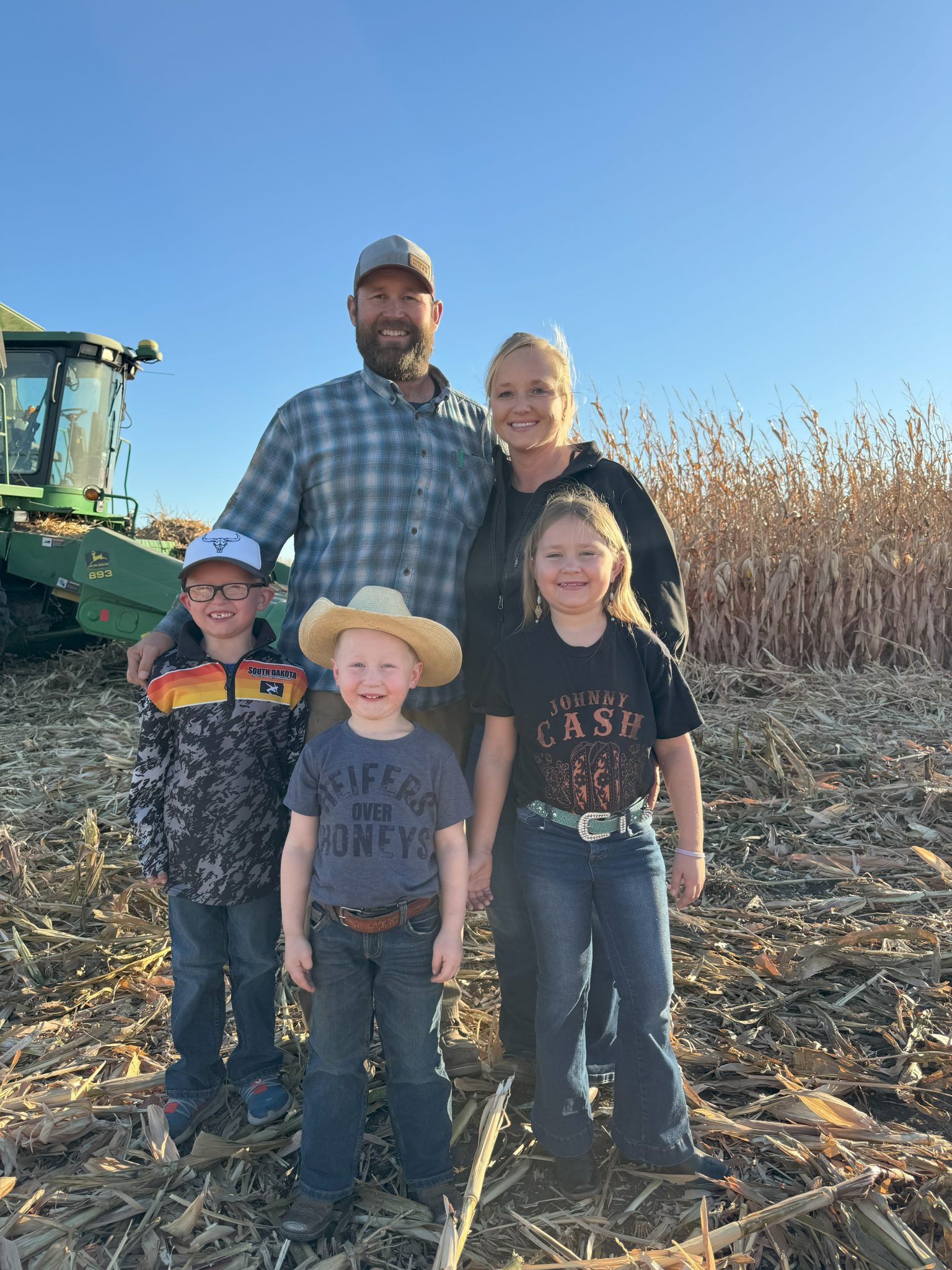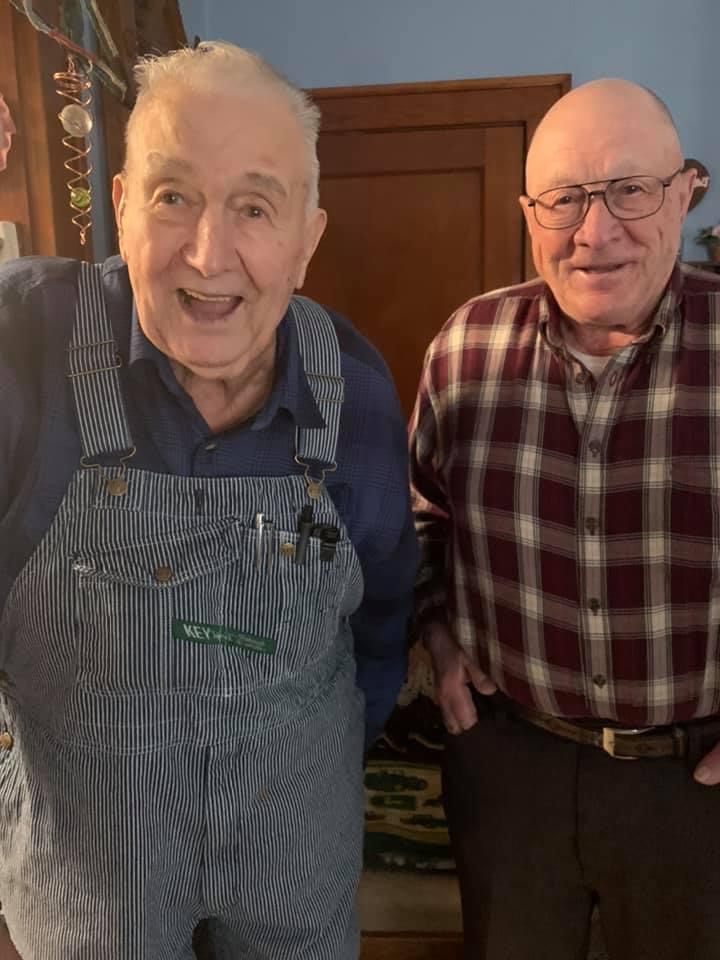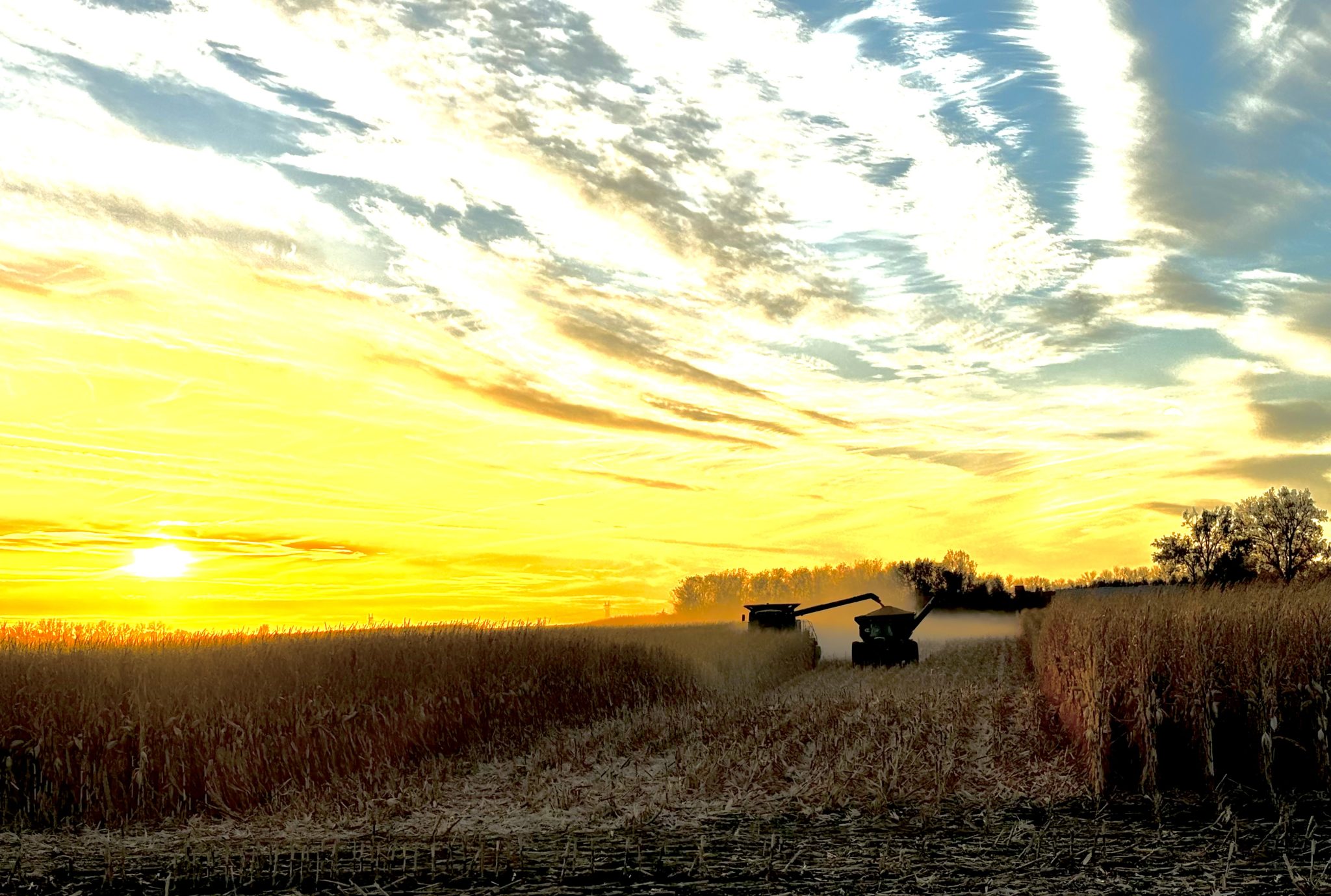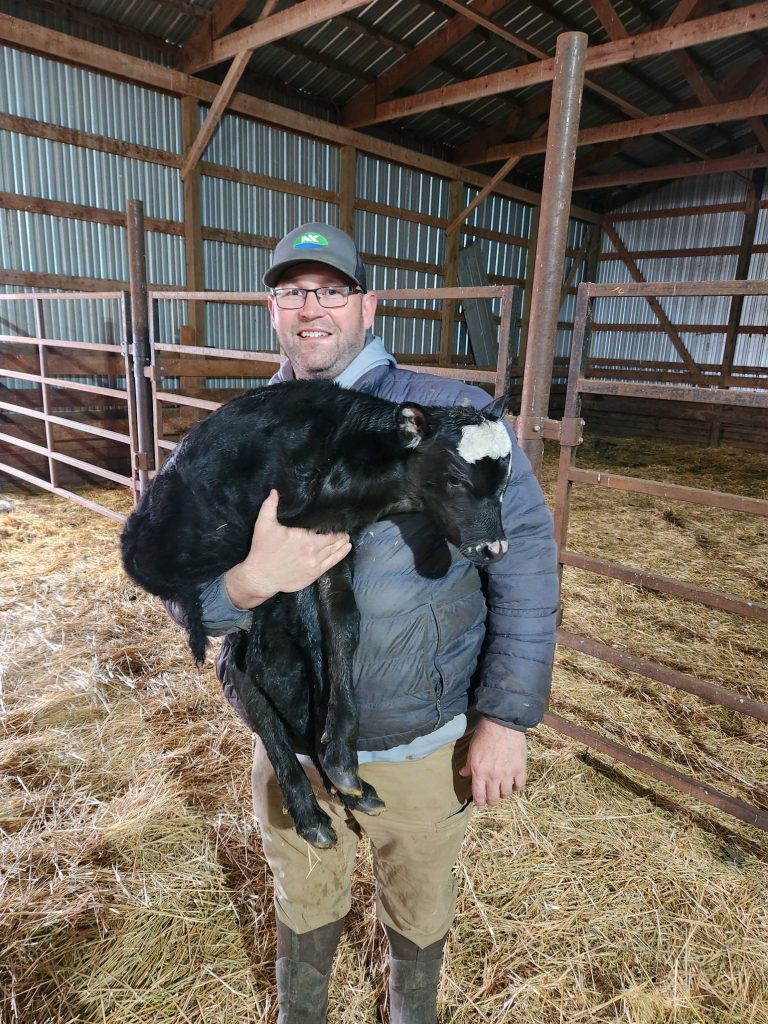Goens Farm Family

By Lura Roti for South Dakota Farmers Union
Combining corn in a field just outside of Clear Lake this fall, Jerad Goens reflects on the generations of family members who harvested crops from this same field and others he farms.
There’s his mom’s great-grandma Mills, his grandpas Dale Hoftiezer and Jerald Goens, his great-uncle Gordon and many more.
“It especially hits me when an old piece of farm machinery or a horseshoe gets caught in the disc openers. The only reason there is a horseshoe left in this field is my great-great-grandparents used to farm this ground with horses,” explained Jerad, a fifth-generation crop and cattle farmer.
Last spring Jerad added another family artifact to the collection – an old skeleton key padlock.
“It is interesting to think, the last person to touch this object was probably my ancestor,” Jerad said.
As he thinks about those who cared for the land before him, along with pride in continuing the family farming legacy comes a bit of anxiety.
“The generations before me came through tough times, but every generation was still able to add land to the farm. Right now, I am concerned about hanging on to what my family worked so hard to gain,” Jerad said.
Jerad explained this harvest his concerns are compounded by high inputs and poor commodity prices. “We just came off a field before this that we actually lost $150 to $200 an acre because of low commodity prices and lower than average yields,” Jerad said.
The field he references has been in his dad’s family for decades. Today, Jerad and his wife, Amanda, lease land from family members on both sides of Jerad’s family tree. They are in the process of purchasing land from Great-uncle Gordon Goens.
“A lot of the family take pride and enjoyment knowing that family is farming this land,” Jerad said. “A lot of my family who I do lease land from were involved in farming or cattle so they know what it takes for me to be successful, so it’s not all about the money.”



Farming is all I wanted to do
Although Jerad grew up in Aberdeen and Sioux Falls, he spent school year weekends and summers helping out on his Grandpa Dale, Grandpa Jerald and Great-uncle Gordon’s farms.
“I started baling straw when I was 8,” Jerad said. “Growing up, the farm is where I wanted to be.”
His great-uncle Gordon recognized Jerad’s love for farming early on. “As a kid, Jerad dug right in, helping his grandpa and dad. I remember him at just 4 or 5 running to grab tools for us,” Gordon said. “Jerad follows after me. If something doesn’t work, we tear it apart. We figure, if it don’t work, you can’t hurt it and you can probably fix it.”
Gordon got his start farming young. He was only 8 when his dad, John, passed away from leukemia, leaving Gordon’s mom with six children to raise and the family farm to care for. John had purchased the family farm back from an insurance company a year before he died.
The insurance company bought the land at auction in 1929 after Gordon’s grandpa was not able to pay the land tax because the money he’d saved up was lost following the Stock Market Crash.
“It was not that he didn’t have the money. When the bank went broke during the crash, no one was able to access their money,” Gordon said. “Dad told us that some of the bankers left town with heavy suitcases.”
Gordon’s oldest brother, Jerald, was only 16 when he began farming full time to fulfill his dad’s dying wish.
After Gordon graduated from eighth grade, he left school and joined his brothers, Jerald and Harlan, to farm full time.
“We would split everything in thirds,” said Gordon, who would farm with his brother Jerald until Jerald’s death in 2022. And in spring 2024, he decided to sell his farm and machinery to Jerad and Amanda.
“I wanted to sell to Jerad and Amanda because I don’t want to cut it up. And since I am selling him everything, there should not be any grumbling. It feels good not to lose sleep worrying about what I should do with the land because I don’t have any children,” Gordon said.
“It is wonderful that Jerad’s uncle is selling his land to us and both his grandpas helped him get started,” said Amanda, a fourth generation farmer. “If we were to start our own operation from scratch there is no way we could do this because of the price of machinery, land and taxes.”
Unlike Jerad, Amanda did grow up on a farm. When she grew up, her parents raised cattle and crops near Dallas, a small farming community in south-central South Dakota.
Amanda and Jerad met about the time she started a career as a traveling physical therapist assistant.
When the couple decided to build their life together, Amanda began working full time in Brookings and now in Milbank. Jerad has an adult daughter, Sara, and Jerad and Amanda have three young children: Jennie (named after Jerad’s great-grandma), Jack (Jack was Jerad’s great-grandpa’s nickname) and Jase.
“Raising our children on the farm is a way of life that teaches them self-respect, discipline and gives them self-confidence because they have chores they can take pride in completing,” Amanda explained.
Amanda works four, 10-hour days, and their children do not have school on Fridays, so the family is on the farm together each Friday.
“Work is fast-paced, we have productivity standards and a lot of patients to see – always rush, rush, rush. I enjoy my time on the farm when I can unwind with our children, get my vitamin D and soak in the fresh air,” Amanda said.
Jerad said the family relies on Amanda’s income for their household budget, reinvesting any farm profits back into the farm.
“It is our goal that we maintain what my ancestors have built and eventually add to it or figure out ways to add value to what we already have,” Jerad said. “If our children want to return to the farm, it is here for them.”

